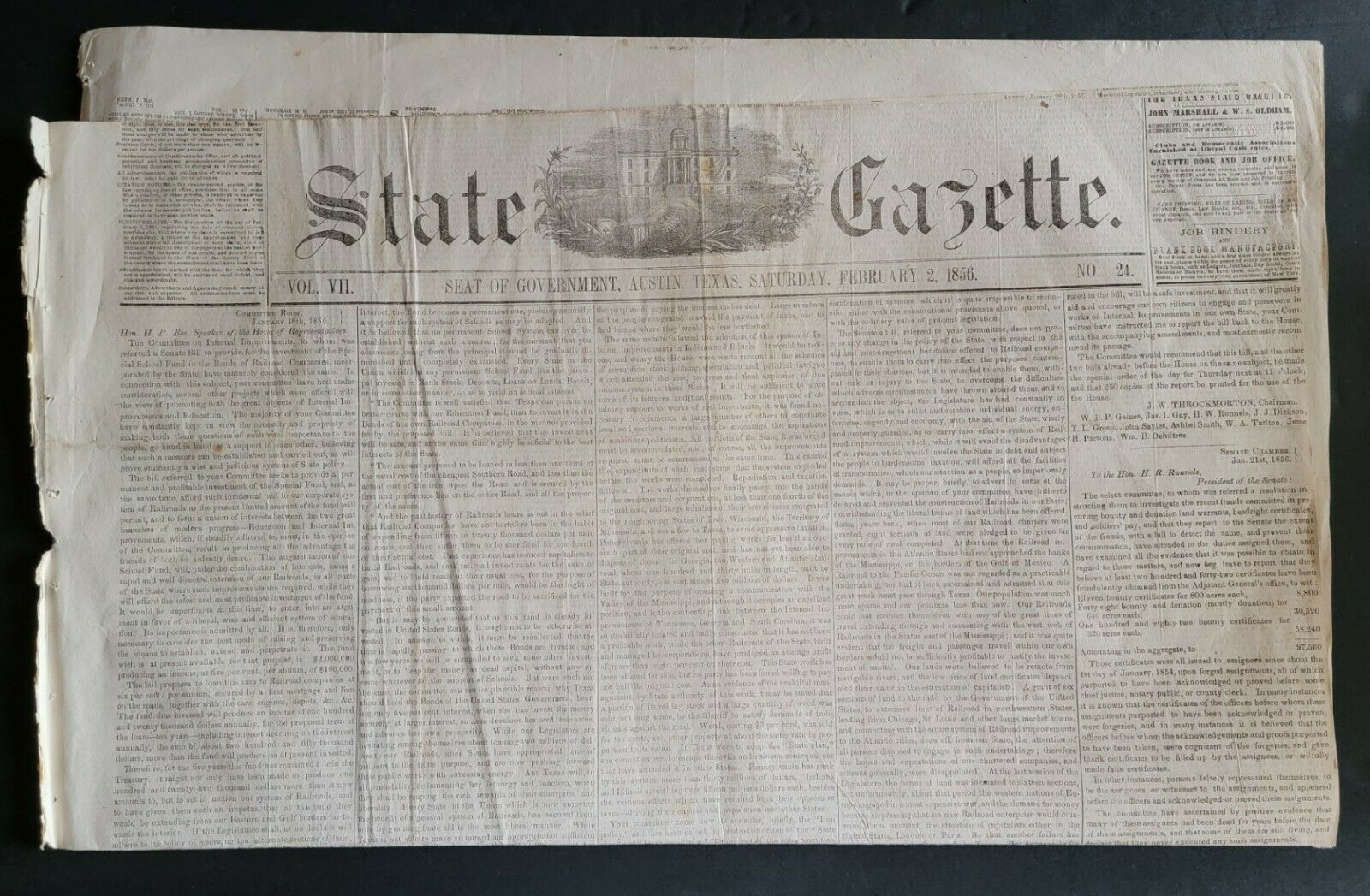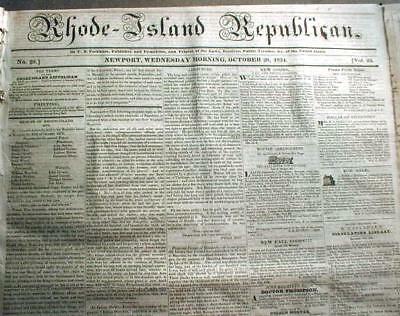-40%
Original 1856 Texas State Gazette Newspaper VOL VII No 24 Pre-Civil War ☆ Austin
$ 26.37
- Description
- Size Guide
Description
Original 1856 The Texas State Gazette Newspaper VOL. VII No. 24 Pre-Civil War ☆ AustinAn original copy of The Texas State Gazette ☆ published at the Seat Of Government, Austin, Texas on Saturday, February 2, 1856
Title includes a vignette of the second state capitol building built in 1853 and destroyed by fire in 1881
Advertisement for Baylor University at Independence, Texas
Austin, Texas business advertisements
4 page bifold newsprint
In very good antiquarian condition - top edge is trimmed with some content loss - some loss at half-fold margin
Dimensions (Half-Folded): 21"W x 25"H
The Texas State Gazette
was one of the most influential newspapers in Texas from the pre-Civil War era until Reconstruction. The paper was founded as the Tri-Weekly State Gazette and first published in Austin by William H. Cushney on August 25, 1849. The paper was known for its strong states'-rights positions and as a voice of the state Democratic Party, a reputation it established during political battles with Sam Houston in the turbulent times before secession. John F. Marshall purchased the Gazette in 1854 and became its best-known editor. He devoted most of his editorials to politics, sectionalism, and support of slavery. Marshall aimed his most candid remarks against Sam Houston, and his crusade against Houston probably influenced the outcome of the gubernatorial election of 1857. Houston suffered the only election loss of his life in his defeat by Democratic nominee Hardin R. Runnels. Marshall attributed Houston's 1859 comeback to a conspiracy among postmasters who, he claimed, withheld copies of the Gazette until after the 1859 election. But Marshall's strident advocacy of reopening the slave trade probably gave Houston the victory by splintering the Democratic Party.















